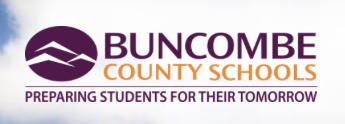As commentary writer Robert “Zack” Zachary continues his educational campaign to bring to light the often-hidden achievements of African-Americans, Xpress checked in with Buncombe County Schools staffers about how the system approaches the teaching of black history. We received the following information from Ben Rickert, assistant director of communications for the district:
“A core value (avl.mx/5og) of Buncombe County Schools is to embrace diversity. This value guides the type of learning communities we aim to build, as well as the content taught in our classrooms every day. All public schools in North Carolina reinforce the standards of the North Carolina Department of Public Instruction. In terms of social studies, guidance is also received from the National Council for the Social Studies, which states that ‘the primary purpose of social studies is to help young people make informed and reasoned decisions for the public good as citizens of a culturally diverse, democratic society in an interdependent world’ (avl.mx/5oh).
“The importance of black history and the contributions of many African-Americans in our state and national history cannot be overstated. Therefore, we aim to approach these topics in numerous ways over years of instruction, giving students the understanding required to be responsible global citizens. Our students learn that Americans are comprised of people who have diverse ethnic origins and traditions, who all contribute to American life. Furthermore, our educators are intentional to connect with the broader Asheville community around a number of cultural events and celebrations of diversity, adding richness to their teaching and understanding of history.”
Rickert also included standards from the N.C. Department of Public Instruction outlining how students, starting in elementary school, are to be taught social studies. K-2 students learn about families and historical figures, while fourth-graders are studying North Carolina’s history, ethnic diversity, culture, geography, civics, government and more. Meanwhile, Buncombe County Schools’ eighth-graders learn about events leading up to the Civil War through Reconstruction. In high school, part of the BCS 11th-grade American literature curriculum is learning about the contributions of Harlem Renaissance writers and thinkers.
The BCS spokesman also included several other examples of how the system and its students explore black history and the contributions of African-Americans, including:
• BCS teachers have attended UNC Asheville’s African Americans in Western North Carolina and Southern Appalachia conference over the past three years; in addition, two teachers presented research and unit development for eighth-grade students this year at the conference.
• Dozens of teachers and students have attended People Not Property workshops sponsored by UNCA’s Center for Diversity Education, focused on the history of slavery in WNC, and numerous classrooms have participated in transcribing original slave deeds (bills of sale and last wills) as part of a national project.
Noted Rickert: “We’re proud of our commitment to diversity, and the many origins and traditions that make up our nation!”
— Tracy Rose




What guidelines are used in K-2 as to which historical figures/families are studied? I understand diversity, but in order to accept others you have to first accept yourself. If a community does not see you as worthy of discussion/study then how should you see that community? Buncombe county schools has a fundamental lack of African American teachers. Students need to be taught their history and see representatives of themselves . Workshops are not the effective way to inspire and educate students whose history does not shine with each thread of history taught. If you are teaching a lesson on George Washington it should go into the discussions of slave treatment and communities in Mt. Vernon, and Phillis Wheatley. Let’s give a complete history if Buncombe county want true diversity.